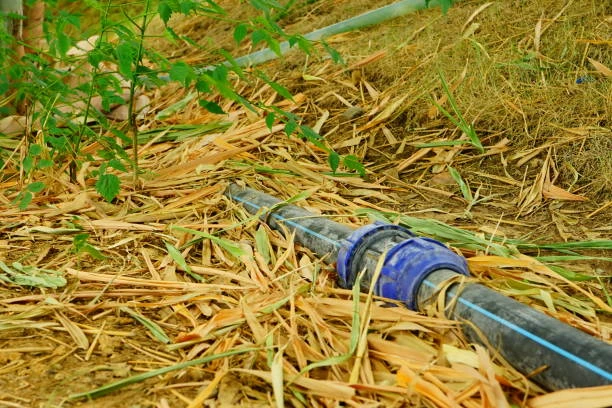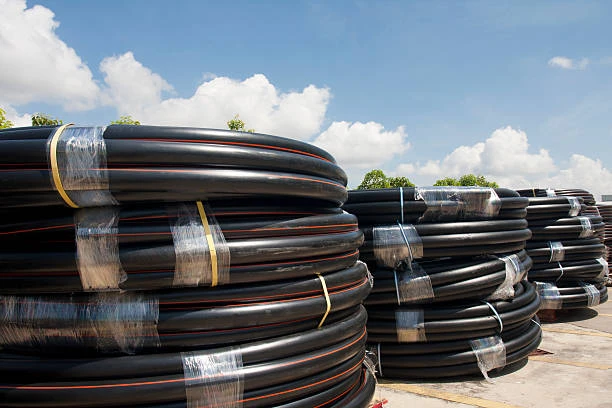Introduction
HDPE pipes and fittings have become increasingly essential in various industries due to their durability, flexibility, and resistance to corrosion. EN 12201 is a European standard that outlines the specifications for HDPE pipes used in the supply of potable water and other applications. AGRU, a leading manufacturer, offers a wide range of HDPE pipes and fittings compliant with EN 12201. In this comprehensive guide, we’ll explore the features, benefits, applications, installation methods, and maintenance of HDPE pipes and fittings available from AGRU.
What is HDPE?
HDPE, or High-Density Polyethylene, is a type of thermoplastic made from petroleum. Its excellent resistance to chemicals and environmental stress makes it a preferred material in construction and infrastructure projects.
Overview of EN 12201
EN 12201 is a European standard that specifies requirements for polyethylene HDPE pipes and fittings intended for the transport of water intended for human consumption. This standard ensures that the materials meet stringent quality and safety requirements, making them suitable for potable water applications. Understanding this standard is crucial for manufacturers, contractors, and engineers involved in projects using HDPE piping systems.
Key Features of HDPE Pipes and Fittings
1. Durability
HDPE pipes are engineered to withstand harsh conditions, making them suitable for various applications.
2. Chemical Resistance
One of the standout features of HDPE is its resistance to a wide range of chemicals. This property makes HDPE suitable for transporting various fluids without degrading.
3. Flexibility
The flexibility of HDPE allows for easy installation and adaptation to various landscapes. It can be bent without breaking, reducing the number of fittings required.
4. Low Weight
HDPE pipes are lightweight, which simplifies handling and transportation.
5. Environmentally Friendly
HDPE is recyclable and can be reused, making it an eco-friendly choice.

Benefits of Using AGRU HDPE Pipes and Fittings
1. Compliance with Standards
AGRU’s HDPE pipes and fittings are manufactured in accordance with EN 12201, ensuring they meet all necessary safety and quality standards. This compliance provides peace of mind for contractors and engineers.
2. Versatility in Applications
AGRU’s HDPE products are suitable for various applications, including potable water supply, irrigation, sewer systems, and industrial use. This versatility makes them a valuable addition to any project.
4. Reliable Supply Chain
AGRU is known for its reliability in manufacturing and distribution. Contractors can trust that they will receive high-quality products in a timely manner, which is critical for project planning and execution.
Applications of HDPE Pipes and Fittings
1. Potable Water Supply
Compliance with EN 12201 ensures that the water remains safe for consumption.
2. Sewer and Drainage Systems
The chemical resistance of HDPE makes it an ideal choice for sewer systems, allowing for efficient wastewater management without the risk of degradation.
3. Irrigation Systems
In agriculture, AGRU’s HDPE pipes are used for irrigation systems, providing efficient water delivery to crops while minimizing wastage.
Installation Guidelines for HDPE Pipes and Fittings
Proper installation is crucial to ensure the longevity and performance of HDPE pipes. Here’s a detailed guide on how to install AGRU HDPE pipes and fittings effectively:
1. Trenching
Dig trenches to the appropriate depth and width, following the guidelines provided by AGRU and EN 12201. The trench should be wide enough to accommodate the pipe and allow for proper bedding.
2. Joining Methods
AGRU HDPE pipes can be joined using several methods, including:
- Electrofusion: Involves using an electric current to heat a fitting that fuses it to the pipe, creating a leak-proof connection.
- Mechanical Fittings: These fittings use clamps and bolts to connect pipes without the need for heat, offering flexibility in joining methods.
5. Testing
After installation, conduct pressure tests to ensure the system is leak-free and meets the required standards. Testing is essential to verify the integrity of the installation.
Maintenance of HDPE Piping Systems
Maintaining HDPE piping systems is relatively straightforward, given their durability and low maintenance requirements. Here are some tips for effective maintenance:
1. Regular Inspections
Conduct routine checks to identify any signs of wear, damage, or leaks. Early detection can prevent costly repairs and ensure the system remains functional.
3. Monitor Surrounding Conditions
Ensure the soil around the pipes remains stable and free from excessive moisture. This helps prevent stress on the pipes and reduces the risk of sagging or deformation.
Common Issues and Solutions
1. Joint Failure
Always follow AGRU’s guidelines for joining methods to ensure secure connections.
2. UV Degradation
Use protective coatings or bury the pipes to minimize UV exposure.
Future of HDPE Pipes and Fittings
With continuous advancements in manufacturing techniques and a growing awareness of environmental issues, the demand for HDPE products is expected to rise.
Conclusion
AGRU’s HDPE pipes and fittings, compliant with EN 12201, offer a reliable and efficient solution for a range of applications, from potable water supply to industrial use. Their durability, flexibility, and resistance to corrosion make them an excellent choice for contractors and engineers. Understanding their features, benefits, and installation methods will help you make informed decisions for your projects.
Frequently Asked Questions (FAQs)
1. What is EN 12201?
EN 12201 is a European standard that specifies the requirements for polyethylene pipes and fittings intended for the transport of drinking water.
3. Are AGRU HDPE pipes recyclable?
Yes, HDPE is recyclable, making it an environmentally friendly option.
4. What applications are suitable for AGRU HDPE pipes?
They are suitable for potable water supply, sewer systems, irrigation, and various industrial applications.


















